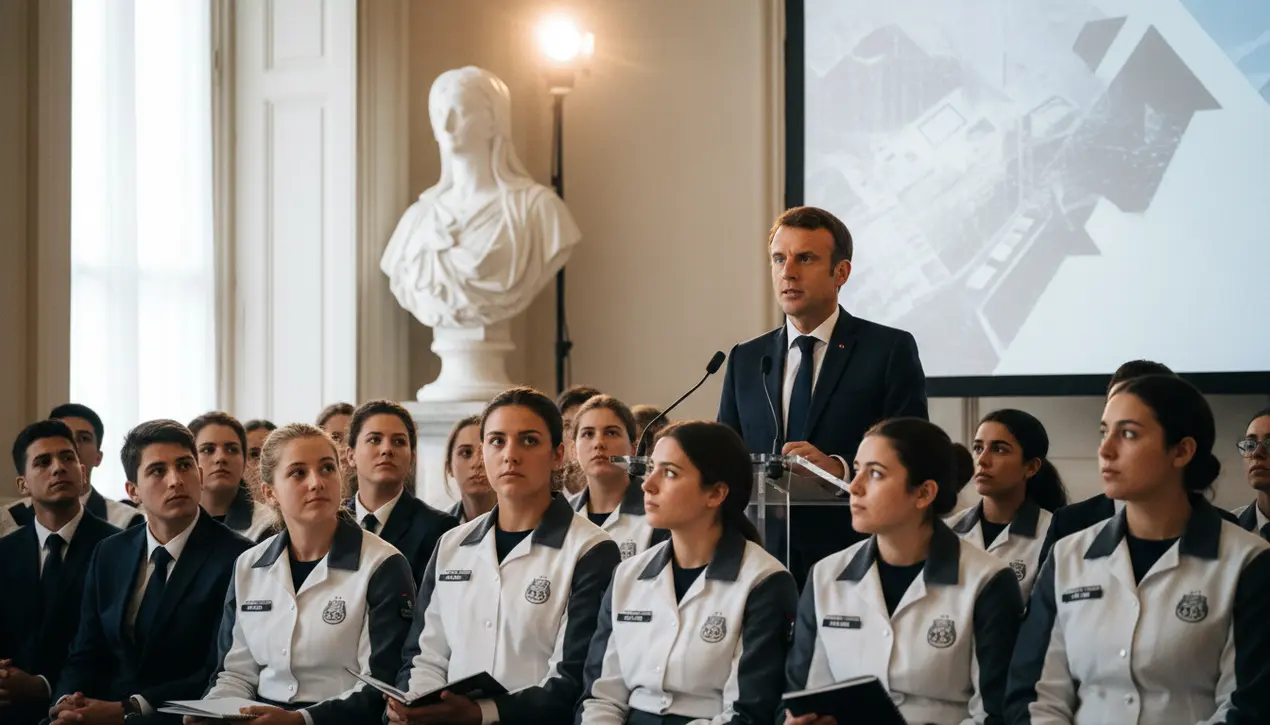
Politicsconflict & defenseMilitary Operations
Macron Reassures Public Over New Voluntary Military Service Plan.
RO
Robert Hayes
5 hours ago7 min read4 comments
In a move that echoes the grand strategic recalibrations of historical European powers, President Emmanuel Macron has moved to assuage public apprehension surrounding his proposed voluntary military service model, a initiative that arrives at a moment of profound geopolitical fragility. His reassurances, delivered with the sober cadence of a statesman navigating a continent in flux, came just hours before a critical videoconference of the Coalition of the Willing in support of Ukraine—a forum where he is anticipated to dissect a US-brokered peace roadmap.This juxtaposition is not merely coincidental but deeply symbolic, revealing a French executive attempting to fortify national resolve while simultaneously projecting strength on the international stage. The new service plan, though voluntary, represents a significant philosophical shift from the traditional French model and is widely interpreted by analysts as a direct response to a resurgent Russia and the increasingly volatile security architecture of Eastern Europe.Macron’s rhetoric, carefully crafted to avoid alarmism while underscoring necessity, draws an unspoken parallel to the preludes of past conflicts, where national mobilization began not with a bang, but with a strategic, gradualist policy. He frames the initiative not as a precursor to conscription, but as a civic-minded program designed to instill discipline, technical skills, and a shared sense of national duty among the youth—a modern-day *service civique* with a sharper, more defensively-oriented edge.The shadow of the Ukraine war looms large over this domestic policy; every artillery shell fired in Donbas seems to reverberate in the halls of the Élysée Palace, forcing a reevaluation of what it means to be secure in 21st-century Europe. This is a Churchillian moment, not of defiance against an imminent invasion, but of long-term preparation for a world where hard power has, once again, become the ultimate arbiter of international disputes.Experts from the French Institute of International Relations (IFRI) suggest that the plan is as much about messaging to the Kremlin as it is about domestic readiness, a signal that France, and by extension the European pillar of NATO, will not let its guard down. There are, of course, political risks.The French public, with its deep-seated republican values and historical skepticism of militarization, may view the program with suspicion, a challenge Macron must navigate with a blend of patriotic appeal and pragmatic explanation. The upcoming coalition meeting, where he will engage with allies on the US peace proposal, adds another layer of complexity.His stance there will be scrutinized for its alignment with this newly assertive domestic posture. Will he advocate for a hardened negotiating line, reflecting a nation preparing for prolonged confrontation, or will he position himself as a bridge-builder, using France’s reinforced sense of security as a foundation for diplomacy? The answers to these questions will define not only the fate of Ukraine but the strategic identity of France for a generation. Macron is thus playing a multi-dimensional chess game, reassuring citizens at home while maneuvering on a global board where the stakes are nothing less than the future of European sovereignty and the balance of power on the continent.
#France
#Emmanuel Macron
#voluntary military service
#Ukraine
#Coalition of the Willing
#peace plan
#defense policy
#featured
Stay Informed. Act Smarter.
Get weekly highlights, major headlines, and expert insights — then put your knowledge to work in our live prediction markets.
Comments
Loading comments...
© 2025 Outpoll Service LTD. All rights reserved.